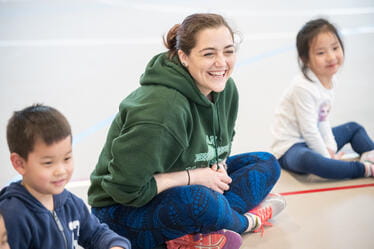OUR US LOWER ELEMENTARY CURRICULUM
At our Lower Elementary School in Dalian, we teach a student-centered curriculum that encourages our children to explore, to question, and to work either independently, within a group, or with an adult.
At this early age, our curriculum emphasizes Literacy, Math, Science, Technology, the Arts, and Music and Movement. We nurture the development of the whole child, too, nurturing growth both in and beyond the classroom.
Through new and immersive experiences, our students develop their cognitive, social, emotional, physical, and fine and gross motor skills. Our holistic approach creates confident, well-rounded inquirers and critical thinkers.













